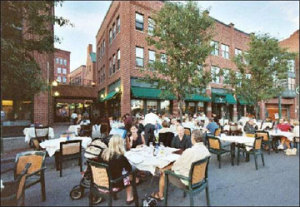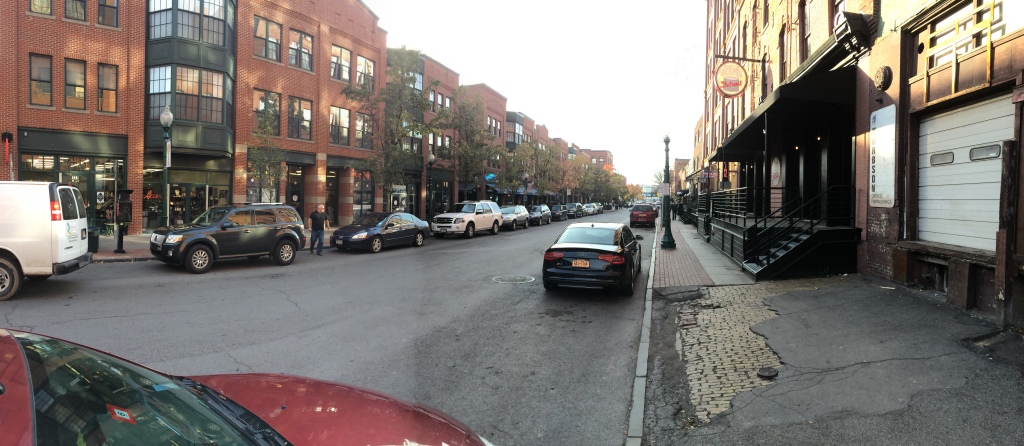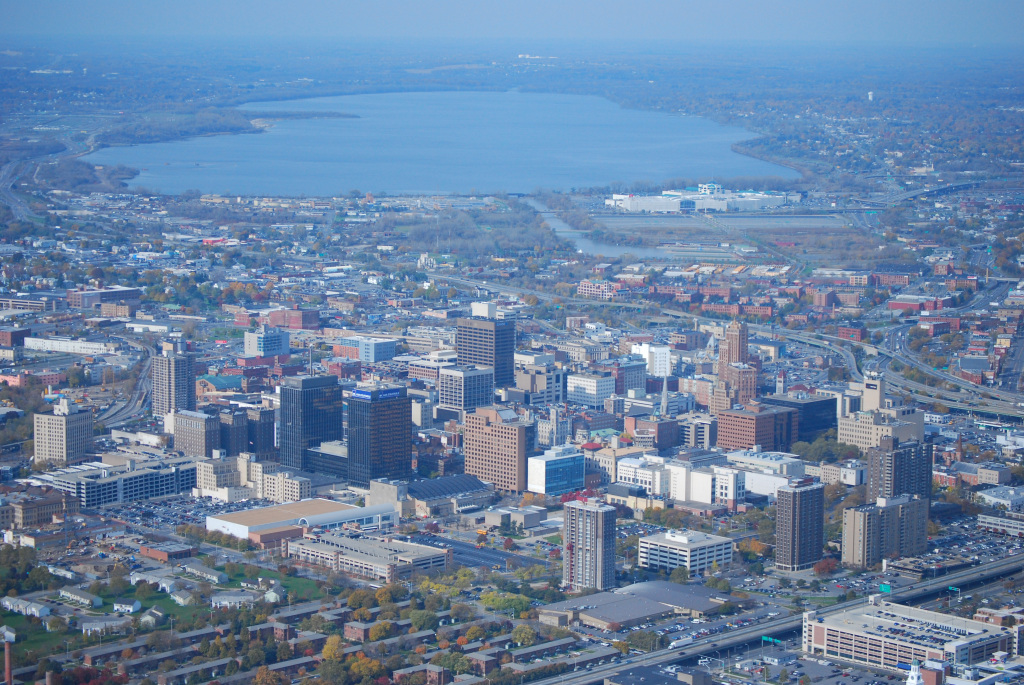The Dynamics of Urban Spaces, People, and Politics
Interested in how cities interact? How politics are affected by borders? Then Urban or Political geography is the kind of geography for you!
Urban and Political Geography are two distinct yet extremely related sub-disciplines within geography. Researchers in both disciplines seek to understand all facets of their respective disciplines from a spatial perspective or by utilizing geographic information.
Simply stated, Urban Geography examines the spatial relationships between people and urban areas and Political Geography examines the relationships between the state, people, and territory.
Many classes at SU educate students about how politics and governance influence the layout of cities and the distribution of social groups within the city. Because SU is located within the beautiful city of Syracuse, we tend to look for local examples of the various political concepts that we talk about in our geography classes.
Transformation of an Urban Space: Armory Square’s Amazing History and Revitalization

Armory Square (Photo Credit: Neil Takemoto)
In the mid-19th century the Armory Square District in downtown Syracuse, NY began to take its current shape as a center of industry. With proximity to the Erie Canal and major rail lines the area was densely built up and bustling with activity for many decades. As the railroads declined in the 1930s however, the majority of industries and hotels in the Armory Square District relocated or ceased operation. Between 1940 and 1960, many buildings were vacated or demolished.
A decade later, with national emphasis on revitalizing the urban environment, the rebirth of Armory Square began. In 1984, an application filed by the Downtown Committee of Syracuse, resulted in the area’s designation as a National Historic District, and facilitated a new spur of development and renovation.
Today Armory Square exists as an exciting downtown destination complete with many restaurants, shopping, attractions, and nightlife!
How Armory Square Revitalization Relates to Urban and Political geographies

Armory Square (Photo taken by undergrad Geography student, Andrew Barrows)
Throughout the mid-20th century, the city of Syracuse experienced massive amounts of de-industrialization and municipal jurisdictional fragmentation. As the city’s white population moved to the suburbs and beyond during a period from the 1960s-1980s, the tax base of the city would rapidly erode. Overtime downtown investment would wane as shopping centers like Destiny USA sprung up in the city’s periphery.
It wasn’t until the 1980s when visionaries like Bob Doucette, a major Armory Square developer responsible for the introduction of the successful restaurant Pastabilities, influenced the Syracuse community to see value in Syracuse’s downtown historic architecture. After looking at the case of Armory Square and its history, it is possible to examine how politics and governance influence the layout of cities and the distribution of social groups within the city.
Take a Look at some Current Attractions and Revitalization Projects in Downtown Syracuse!
View the full story map here.
Interested?
Learn more about Urban and Political geographies by taking related courses here at SU, and the number of exciting careers!
List of Related Courses
Visit the SU Course Catalog for more info.
- GEO200 – Cities of the World
- GEO273 – World Political Economy
- GEO313 – The United States
- GEO362 – The European City
- GEO372 – Political Geography
- GEO340 – Geography of Oil
- GEO400 – Geopolitics of the Greater Middle East
- GEO425 – South Africa
- GEO485 – Community Geography
- GEO500 – Urban and Regional Planning
- GEO564 – Urban Historical Geography
- GEO573 – Geography of Capital
This is a non-exhaustive list. Become a major or minor to discover more!
Potential Careers
- Public Administration
- Real Estate
- Transportation Management
- Urban Planner
- Community Development
- Community Organizer
- Policy Consultant or Researcher
- Lobbyist (Advocate)
- Foreign Services Officer
- International Development Specialist
And many, many more! For further reading on Geography careers, click here.

